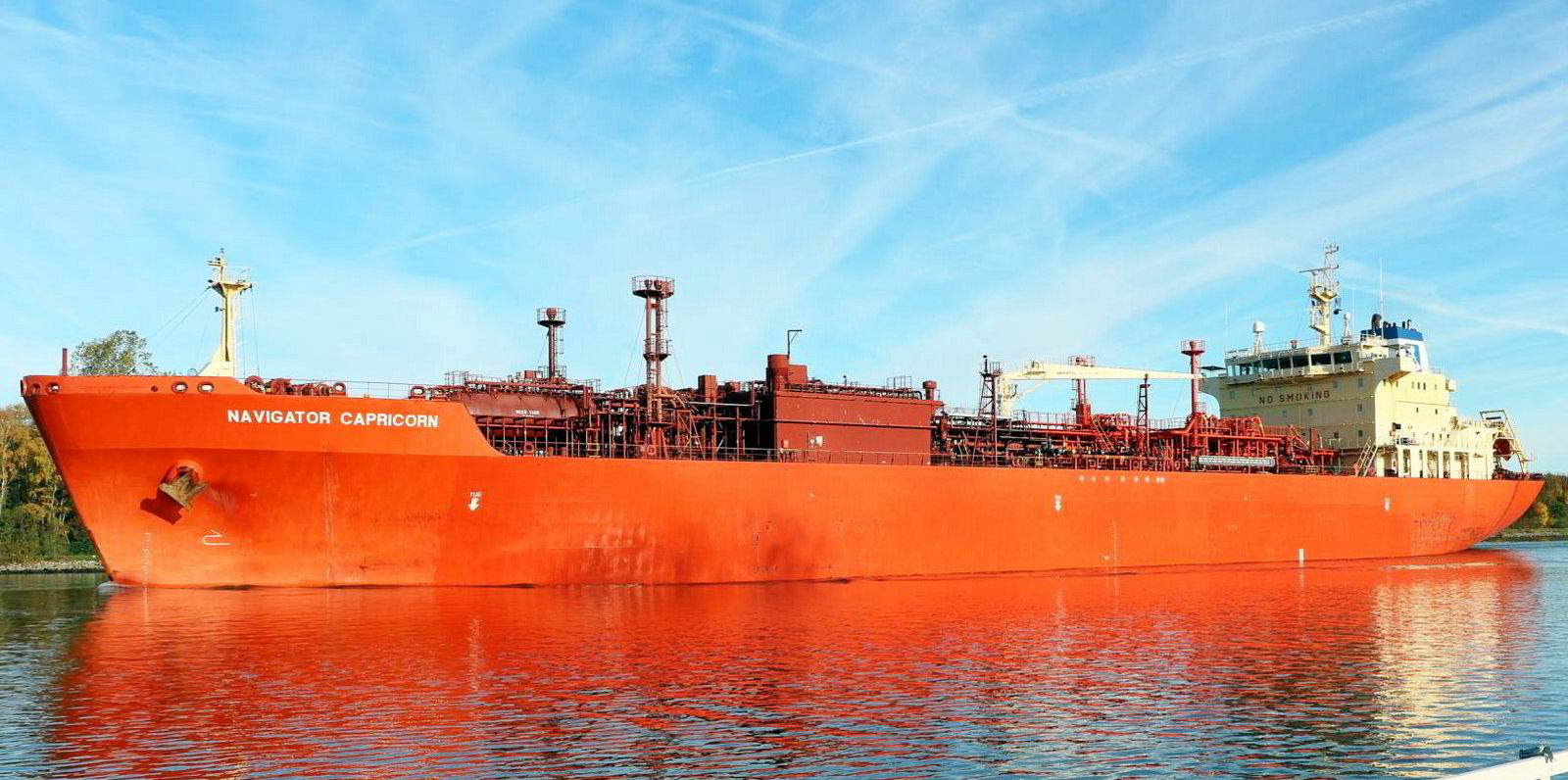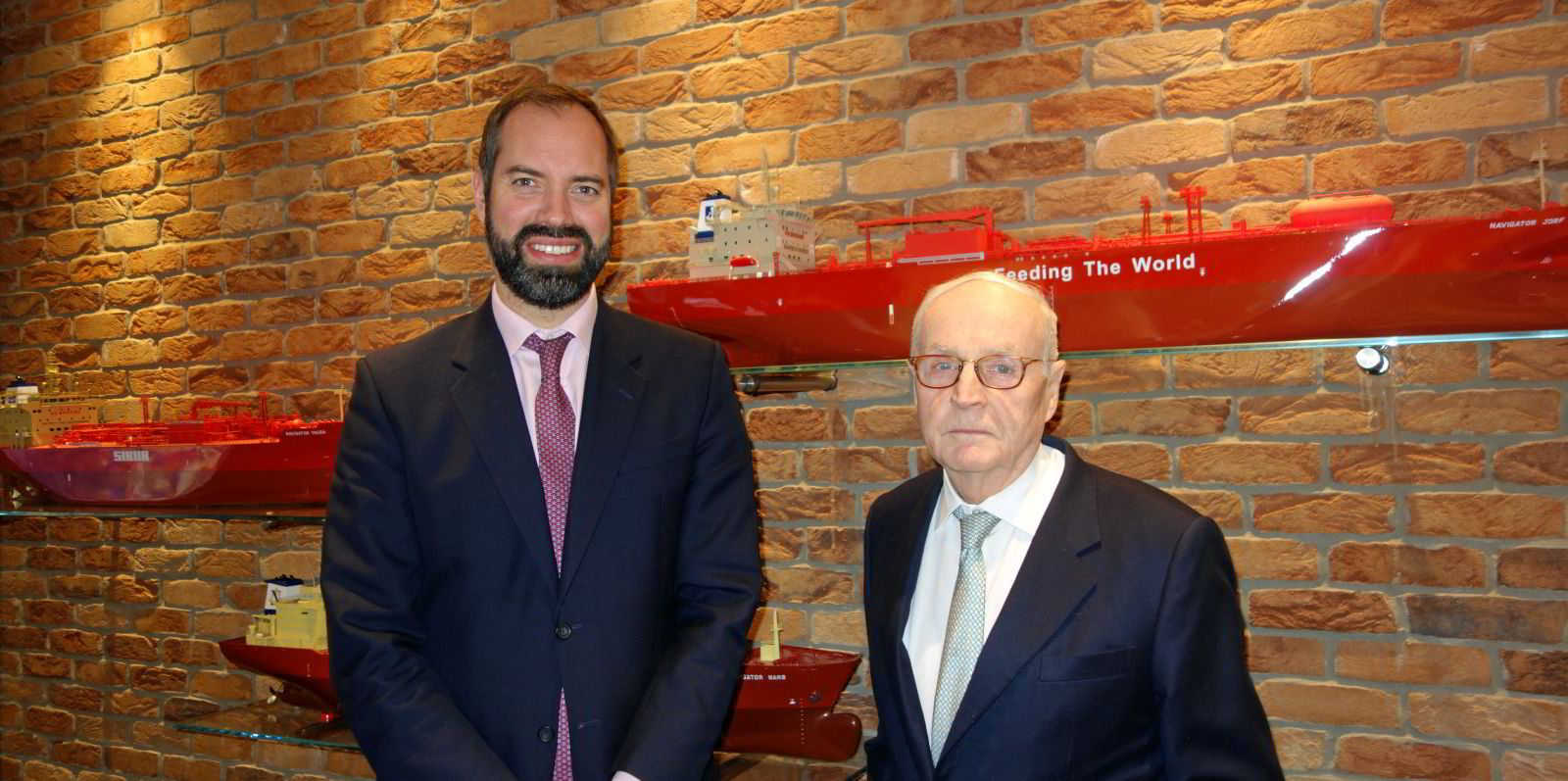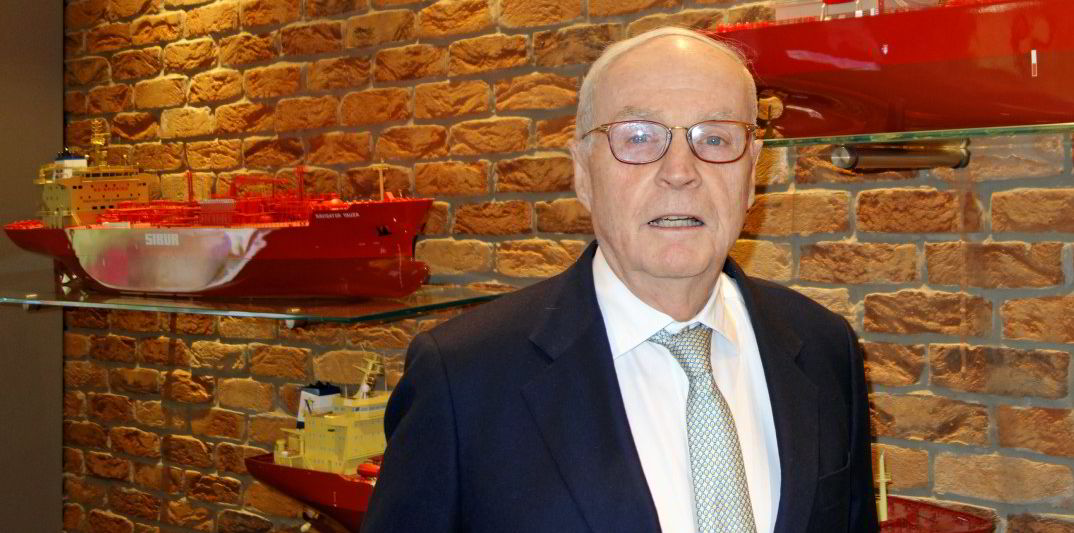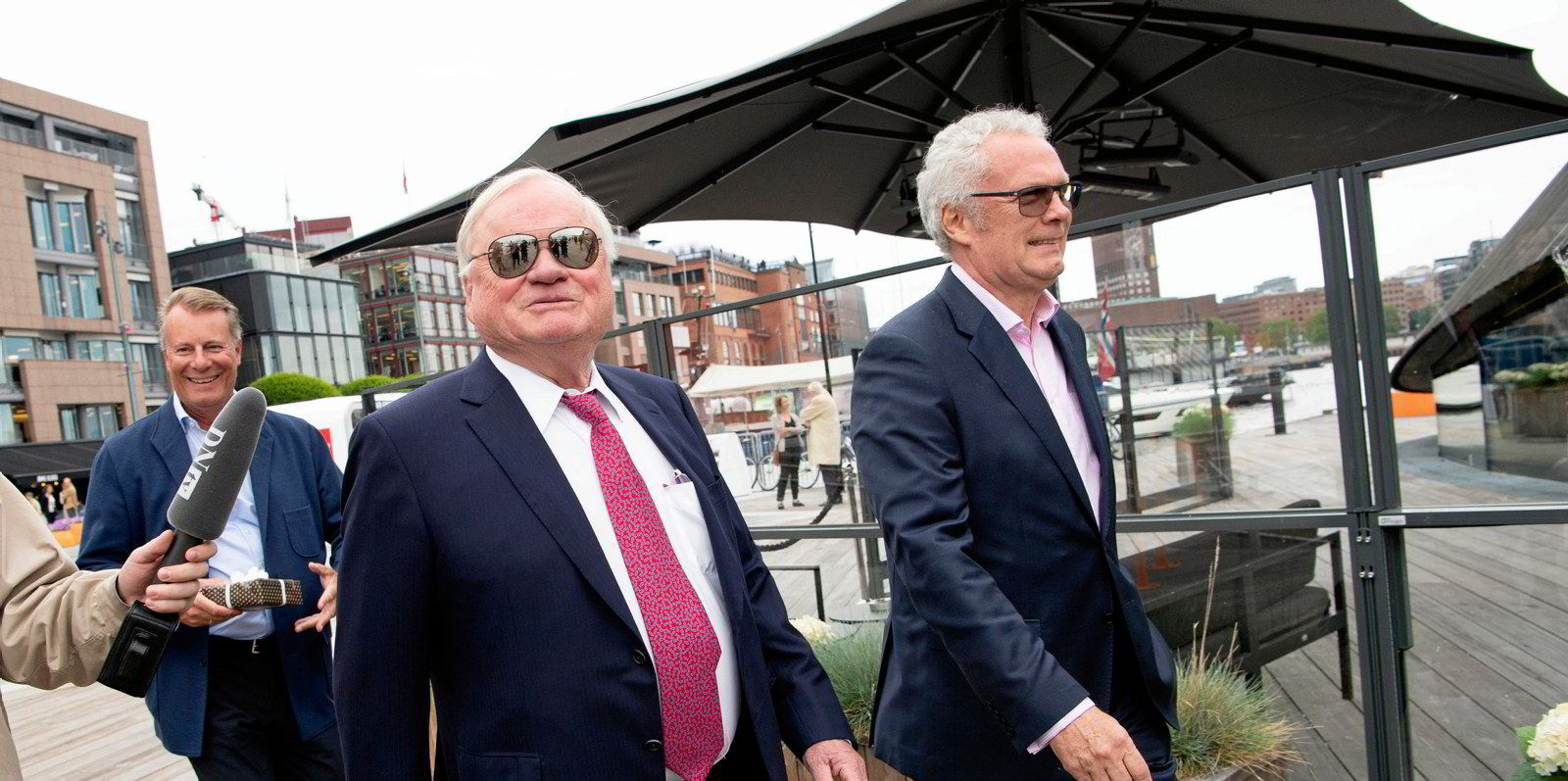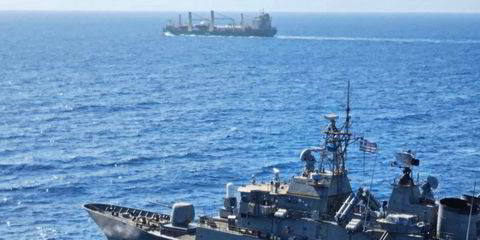Navigator Holdings has clinched four new charters to export propane from Canada.
The US-listed company has signed a deal for the handysize ships for a period of 12 months to lift gas for Japan's Mitsui & Co at a new terminal in Prince Rupert.
The facility is operated by Pembina Pipeline Corp in British Columbia.
The four semi-refrigerated ships are expected to start their charters with Mitsui from the second half of May, but no financial details have been revealed.
Fearnley Securities quotes a rate for a one-year time charter of similar tonnage in the low to mid-$20,000s per day.
The vessels are able to load ambient-temperature propane from the rail-supplied terminal, negating the need for capital-intensive onshore chilling facilities.
The ships will form "an essential part" of the Canadian LPG value chain from production to final customer, the US shipowner said.
The cargoes will head across the Pacific to Asia.
"The vessels, together with Pembina’s new export terminal in Prince Rupert, and Mitsui’s trading network in the global LPG market, will enable Canadian-produced LPG to be exported outside the traditional North American markets," Navigator added.
Matching the big ships
Harry Deans, the London-headquartered company's chief executive, said the deal was a result of Navigator's "collaborative, transparent and honest approach over the last three years".
Chief commercial officer Oeyvind Lindeman added that the agreement comes after years of assisting key stakeholders by sharing the company's know-how in maritime gas transport.
"It is a remarkable project highlighting the advantages of semi-refrigerated vessels," he added.
Lindeman argued that the whole logistics chain, from the processing plants in Alberta, the rail service to the terminal in British Columbia, and the sea transport, can be price-competitive compared to VLGCs.
Fearnleys in on the deal
Mitsui said in a statement that it had worked with Norwegian shipbroker Fearnleys on the charters.
"Together with our partners, ... we have overcome logistical challenges and have found a means to create a pipeline from production in Alberta all the way to our end users. This would not be possible without the expertise, competence and ingenuity of our partners," the company added.
Navigator agreed a $390m all-stock merger with Chile's Ultragas earlier in April, creating a fleet of 56 vessels.
Investment bank Fearnley Securities said six of the Chilean shipowner's older and smaller ships could be sale or scrapping candidates.
The Ultragas fleet comprises 18 vessels: seven 22,000-cbm semi-refrigerated ships built from 2014 to 2017; five modern ethylene-capable ships of 12,000 cbm; and six more carriers ranging from 3,700 cbm to 9,100 cbm.
